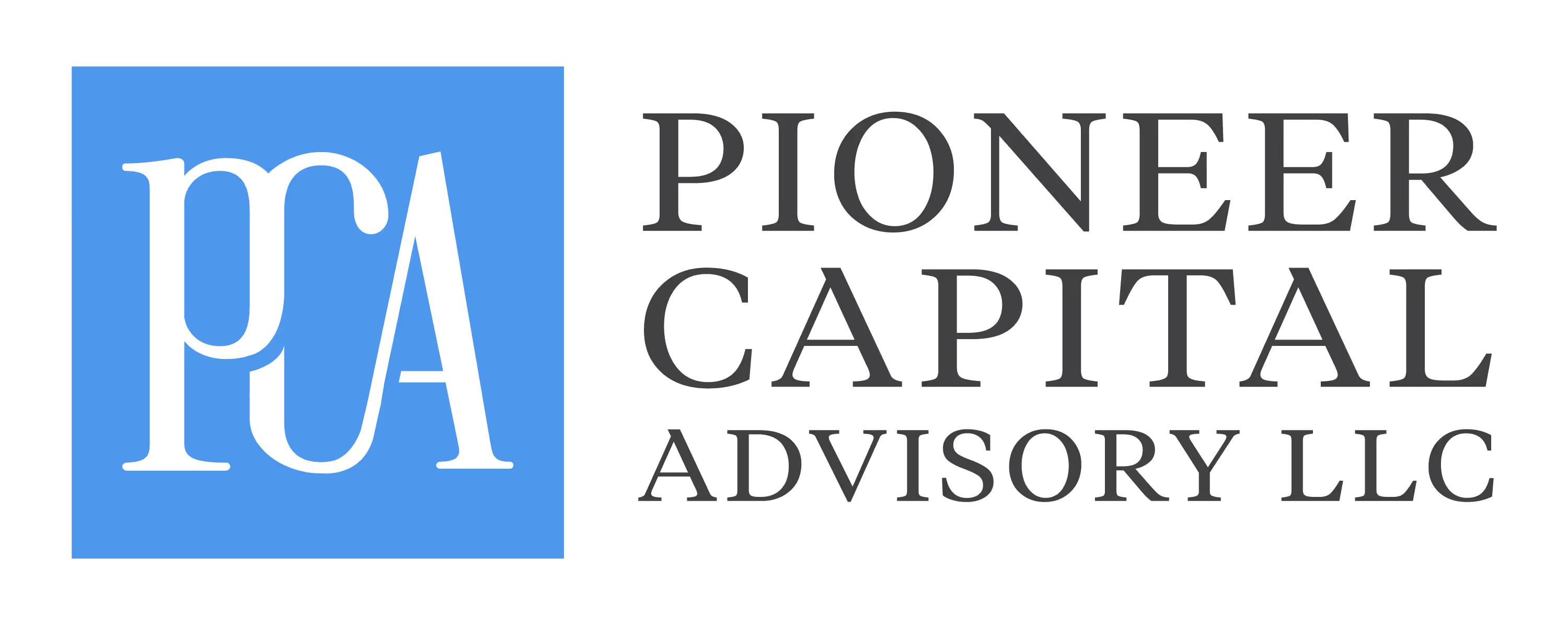


How to Get a Business Loan to Buy an Existing Company
If you’ve ever dreamed of owning a business, you’re likely already weighing your options: should you start something brand new, or should you purchase a business that’s already up and running? For many aspiring entrepreneurs, buying an existing company is a smart, strategic move that opens the door to opportunity while minimizing some of the risks that come with building from the ground up.
When you buy an established business, you’re not starting from zero. You’re stepping into a business that already has customers, employees, vendor relationships, and proven systems. That means you’re inheriting a functioning operation that has already worked through many of the kinks that often trip up startups in their early stages. It also means you’ll have real data and financial records to work with, making it easier to understand what you're buying and plan for the future.
Of course, purchasing a business usually requires a significant financial investment. Most buyers don’t have all the necessary funds available in cash, and even if they do, they may prefer to use financing to preserve liquidity or free up capital for growth initiatives after the acquisition. That’s where business loans come into play. The right loan can provide the financial backing you need to turn your vision into reality, without stretching yourself too thin.
In this guide, we’re going to walk you through everything you need to know about getting a loan to buy an existing business. We’ll explore the most common types of business acquisition loans, help you understand what lenders are looking for, and share practical tips for preparing a strong loan application. Whether you're interested in purchasing a franchise, a service-based company, or a small local business that’s been part of the community for years, this article will give you the clarity and confidence you need to take the next step.
Our goal is to demystify the process so you can focus on what really matters: finding the right business, negotiating a great deal, and setting yourself up for long-term success as a business owner.

Why Buy an Existing Business Instead of Starting One from Scratch?
Starting a new business can be an exciting venture, but it’s also filled with uncertainty, long ramp-up periods, and a high rate of failure. In contrast, buying an existing business is often a far more strategic, stable, and lender-friendly path to entrepreneurship—particularly for individuals looking to minimize risk and accelerate their journey to profitability.
When you acquire an existing business, you're not just purchasing physical assets or inventory—you’re stepping into a functioning enterprise with a proven track record, established processes, and an existing customer base. This can dramatically reduce the learning curve and the capital required to reach breakeven or profitability.
Built-In Infrastructure and Operations
A startup requires time and effort to build essential business components like marketing systems, accounting practices, vendor relationships, and operational workflows. However, an existing business already has these pieces in place. You gain access to:
- Tested operating procedures that reflect real-world learning over time
- Trained staff and experienced management who understand day-to-day operations
- Established supply chains and vendor contracts that may have taken years to negotiate
- Customer data and loyalty, allowing you to hit the ground running with revenue generation
This built-in infrastructure can save months—or even years—of trial and error.
Proven Financial Performance
One of the most important benefits of acquiring an established business is the availability of financial history. This gives you and your lenders visibility into:
- Revenue trends over time
- Seasonal cash flow fluctuations
- Expense categories and cost structures
- Profit margins, customer concentration, and potential risks
Armed with this information, you can make data-driven decisions and plan intelligently from day one.
Lower Risk Profile
According to multiple studies, the failure rate of startups is significantly higher than that of acquired businesses. By purchasing a business that has demonstrated staying power, you're buying into a model that has already navigated early-stage volatility. This reduces many of the “unknowns” that make startups risky:
- Product-market fit is already validated
- The brand often has local or regional recognition
- Revenue-generating channels are functional and active
- The business has already adapted to some market changes and competition
This lower risk profile is not just beneficial to you—it also makes it easier to attract financing.
Easier Access to Capital
Lenders and investors tend to be risk-averse. When applying for financing to acquire an existing business, you’re often viewed more favorably than someone launching a startup. Here’s why:
- Historical financials can be used in cash flow underwriting
- There’s less reliance on future projections and more emphasis on actual performance
- The business often has existing collateral (accounts receivable, equipment, etc.)
- SBA 7(a) loans and other acquisition financing programs are designed specifically for business purchases—not startups
In short, banks and SBA lenders are more comfortable providing capital for a business with a verifiable ability to repay the loan.
Accelerated Path to Ownership and Growth
With the operational foundation already in place, new owners can focus more on growth and strategy rather than setup. Instead of struggling to build systems from scratch, you can:
- Analyze what’s already working and refine it
- Identify areas for improvement and innovation
- Expand geographically or into adjacent markets
- Introduce new products or services with a ready-made customer base
The combination of immediate income, market presence, and operational stability allows entrepreneurs to scale faster and with more confidence.
Key Advantages of Acquiring an Established Business
- An experienced team and efficient operational systems are already in place, reducing the time and effort needed to manage daily business functions.
- Comprehensive financial records offer visibility into revenue trends, expenses, and cash flow, enabling data-driven decisions from the outset.
- Lower risk of failure compared to launching a new venture, as the business model has already been tested and validated in the marketplace.
- Accelerated pathway to generating revenue and achieving profitability, with income often starting from day one.
- Improved access to financing, including SBA and traditional bank loans, due to the business’s existing performance history and lower perceived risk.
- Opportunity to capitalize on existing momentum, leveraging brand reputation, customer relationships, and market presence rather than building from scratch

What Types of Loans Can You Use to Buy a Business?
Purchasing an existing business is one of the most rewarding entrepreneurial decisions you can make—but it also requires navigating the complex world of business financing. Whether you're a first-time buyer or a seasoned entrepreneur, understanding your financing options is essential to structuring a successful deal.
There’s no one-size-fits-all loan for business acquisitions. Each type of loan comes with its own advantages, requirements, and strategic uses. Below, we outline four widely used types of financing options to help you buy an existing business—along with when and why each one may be the right fit.
1. SBA 7(a) Loan — A Popular and Flexible Option for Business Buyers
The SBA 7(a) loan is widely regarded as the gold standard for financing small business acquisitions in the United States. This government-backed loan program is specifically designed to help entrepreneurs access capital with flexible terms and favorable lending criteria.
Key Advantages of SBA 7(a) Loans:
- Up to 90% Financing: Buyers are often only required to contribute 10% of the purchase price, which allows for greater leverage and cash preservation.
- Low Interest Rates: SBA loans typically offer competitive rates, making monthly debt service manageable.
- Extended Repayment Terms: With repayment terms up to 10 years, buyers benefit from reduced monthly payments, improving post-acquisition cash flow.
- Leniency on Collateral: Since the loan is partially guaranteed by the federal government, lenders may approve deals even when the business lacks sufficient collateral—especially if the cash flow is strong.
- Ideal for First-Time Buyers: The SBA 7(a) program is particularly supportive of buyers who don’t yet own a business or who are buying into an unfamiliar industry.
Additionally, sellers are often willing to carry a portion of the financing, further decreasing the buyer’s upfront cash requirement and increasing the lender's confidence in the deal.
2. Seller Financing — A Powerful Tool to Bridge the Gap
Seller financing is a common and highly valuable component in business acquisition deals. In this arrangement, the seller agrees to finance a portion of the transaction—typically between 10% and 30% of the purchase price—through a promissory note that the buyer repays over time.
Benefits of Seller Financing:
- Reduces Buyer’s Cash Requirement: By sharing the risk with the buyer, the seller helps reduce the amount of capital needed up front.
- Builds Lender Confidence: When a seller is willing to finance part of the deal, it signals that they believe in the business’s continued success.
- Improves Deal Structure: Lenders often view seller notes favorably, especially when layered alongside SBA or conventional financing. It can serve as “soft equity” that helps satisfy loan underwriting criteria.
Seller financing is frequently used in tandem with SBA 7(a) or conventional loans, creating a more comprehensive and manageable financing stack that benefits all parties involved.
3. Conventional Business Loans — Best for Well-Capitalized Buyers
Conventional loans are traditional loans provided directly by banks or credit unions without a government guarantee. While they offer more flexibility in how funds can be used, these loans generally come with stricter qualification standards and higher down payment requirements.
What to Expect with Conventional Loans:
- Down Payment Requirements: Typically range from 20% to 30% of the purchase price.
- Higher Qualification Standards: Lenders will look for excellent credit, strong personal financial statements, and direct industry experience.
- Best for Asset-Rich Businesses: These loans are more viable for deals involving businesses with tangible assets such as real estate, inventory, or equipment.
- Limited Flexibility: Without SBA support, the terms may not be as generous in terms of repayment periods or interest rates.
This option is well-suited for buyers with a substantial net worth and deep industry expertise who are acquiring established businesses with predictable cash flow and verifiable records.
4. ROBS (Rollovers as Business Startups) — A Strategic Use of Retirement Funds
If you have significant retirement savings and want to invest them into a business acquisition—without incurring early withdrawal penalties or taxes—ROBS may be an ideal solution.
How ROBS Works:
Rollovers as Business Startups (ROBS) allow you to roll over funds from a qualified retirement account (such as a 401(k) or IRA) into a new corporation that uses the funds to purchase or invest in a business. This strategy creates a self-directed investment in a new entity—your business—while remaining compliant with IRS rules.
Things to Consider:
- No Early Withdrawal Penalties: Unlike a typical withdrawal, a ROBS transaction is structured to avoid taxes and penalties.
- Complex Compliance Requirements: You’ll need to maintain ongoing IRS compliance, file the proper annual reports, and operate within a C Corporation structure.
- Professional Support is Essential: Because of the legal and tax implications, we strongly recommend working with a ROBS specialist to ensure proper setup and administration.
ROBS can be an empowering way to buy a business without taking on debt—if handled correctly.

What Lenders Evaluate in Business Acquisition Loans
When applying for financing, lenders must be confident in both you as the buyer and the business you are acquiring. Below are the most important components of a successful loan application:
1. Business Financials
Lenders want to see three years of clean and organized financial records—this includes tax returns, profit and loss statements, and balance sheets. The business should show consistent cash flow, upward trends, and manageable existing debt.
2. Debt Service Coverage Ratio (DSCR)
A minimum DSCR of 1.25x is usually required. This means the business must generate at least 25% more income than is needed to cover its debt payments.
3. Buyer’s Credit Profile
Your personal credit score should generally be 680 or higher. Lenders also prefer minimal personal liabilities and a demonstrated history of managing credit responsibly.
4. Relevant Industry Experience
Having experience in the same or a closely related industry can significantly boost your chances of approval. If you're entering a new sector, consider bringing on an experienced operator or mentor as part of your acquisition strategy.
5. Industry Profile of the Target Business
Certain industries are considered more stable and bankable. Lenders often favor industries with recurring revenue, diversified customer bases, and positive long-term trends.
How Much Do You Need to Put Down?
Down payment requirements vary depending on the type of financing used and the structure of your deal:
SBA Loans
- Typically require 10% to 15% down.
- If the seller carries a portion of the loan, the buyer’s cash requirement may decrease further.
Conventional Loans
- Expect a down payment between 20% and 30%, particularly when the target business lacks substantial physical assets.
Seller Financing Structures
- Can help reduce upfront costs significantly.
- For example, a $1 million deal could be structured as:
- 15% Buyer Equity ($150,000)
- 15% Seller Note ($150,000)
- 70% SBA Loan ($700,000)
- 15% Buyer Equity ($150,000)
Adding Investors
- In some cases, private investors can provide equity capital in exchange for a share of ownership or future profits. This reduces the cash you need to contribute personally.
Each deal is unique, and a thoughtful capital structure can open doors to acquiring a business that might otherwise seem out of reach.
How to Start the Financing Process
Buying a business is a journey, and preparing for the financing process upfront will save you time, stress, and missed opportunities. Here’s a structured step-by-step guide to get you started:
Step 1: Identify a Viable Business
Focus on businesses with strong financial records, recurring revenue, and growth potential. Avoid businesses that rely too heavily on the owner or have opaque bookkeeping.
Step 2: Gather Documentation
Prepare financial documents including:
- Three years of tax returns
- Year-to-date profit and loss statements
- Current balance sheet
- Business debt schedule (if applicable)
Step 3: Talk to Lenders or Loan Brokers
Engage with professionals early to discuss your financing options, get prequalified, and understand lender expectations. A knowledgeable broker can help you choose the right loan type and navigate lender preferences.
Step 4: Build Your Buyer Profile
Compile:
- Your resume with relevant experience
- A personal financial statement
- Your personal credit report
- A written explanation of why you want to buy the business and how you plan to operate it
Step 5: Submit Your Application
Once all your materials are in order and you’ve confirmed deal terms with the seller, you’re ready to apply. Prompt communication, preparation, and organization will make this process smoother and more successful.

Frequently Asked Questions (FAQs)
1. Can I get an SBA loan without putting up collateral?
Yes—you can. One of the advantages of the SBA 7(a) program is that it’s cash-flow based, which means strong business performance can often offset the need for traditional hard collateral like real estate or equipment.
That said, there are some non-negotiables when it comes to SBA lending. The SBA requires a first-position lien on all assets of the business being acquired, and any individual who owns 20% or more of the business must provide an unlimited personal guarantee. Additionally, most SBA lenders will require a life insurance policy on the guarantor—typically the buyer—for the full value of the loan to protect against unforeseen events.
2. Can I still buy a business if my credit isn’t perfect?
It’s possible, but lenders will take a closer look at the full picture. If your credit history has blemishes, you’ll need to demonstrate strong compensating factors, such as:
- Deep, relevant industry experience
- A larger equity injection or down payment
- Seller financing to reduce lender exposure
- A financially strong partner or co-guarantor
While lower credit scores may not automatically disqualify you, you’ll need to be proactive and transparent during the process.
3. How long does it typically take to secure SBA funding?
On average, SBA 7(a) loans take between 45 and 90 days from application to funding, depending on the complexity of the transaction. If you're pursuing conventional bank financing or seller financing, timelines may be shorter—but SBA loans provide long-term advantages that are often well worth the wait.
4. Is the SBA 7(a) program a good fit for first-time buyers?
Absolutely. The SBA 7(a) program was designed with first-time business buyers in mind. It offers favorable terms, lower down payment requirements, and extended repayment periods—all of which help make the transition to business ownership more accessible and sustainable.
5. Can I use an SBA loan to acquire a franchise?
Yes. In fact, many franchise systems are pre-approved by the SBA and listed in the SBA Franchise Directory. These businesses often have well-established models and support systems, which can make them particularly attractive to lenders and first-time buyers alike.
Conclusion
Buying a business is one of the most effective ways to take control of your future—and having the right financing partner can make all the difference. With expert guidance, a thoughtful strategy, and the right documentation, the process can be both efficient and empowering.
At Pioneer Capital Advisory, we specialize in helping buyers navigate the SBA lending process with confidence. With 95 deals successfully closed, we bring the experience, insight, and lender relationships needed to get your deal across the finish line.
Whether you're just starting your search or already in contract, we’re here to help you structure a winning deal, secure the best financing, and step into business ownership with clarity and peace of mind.
Ready to take the next step?
Reach out today to schedule a one-on-one consultation with our team.
New Blog Posts


